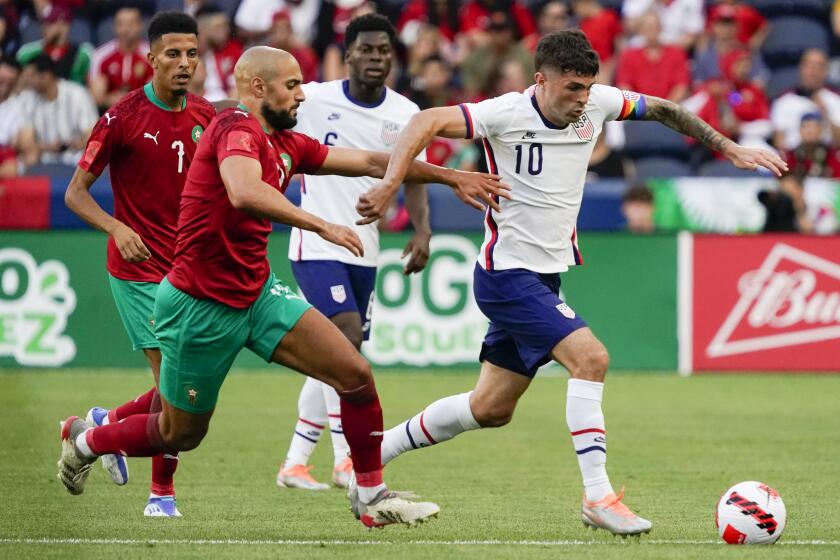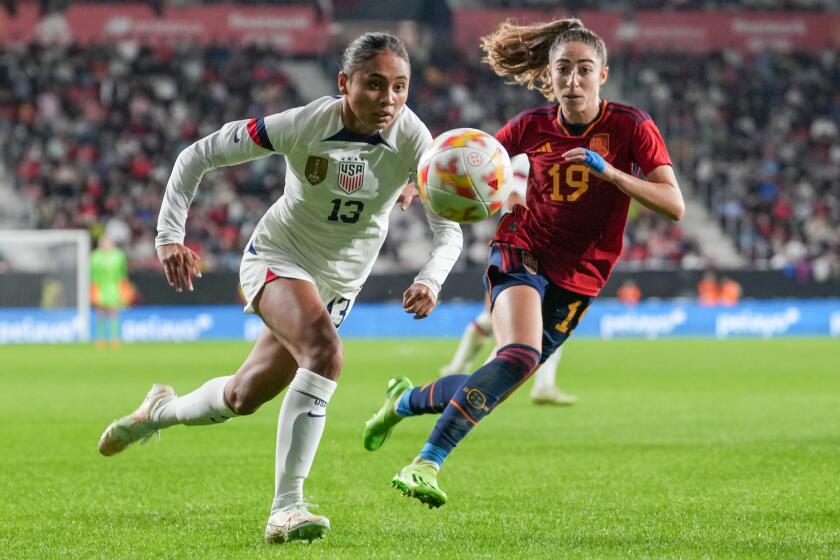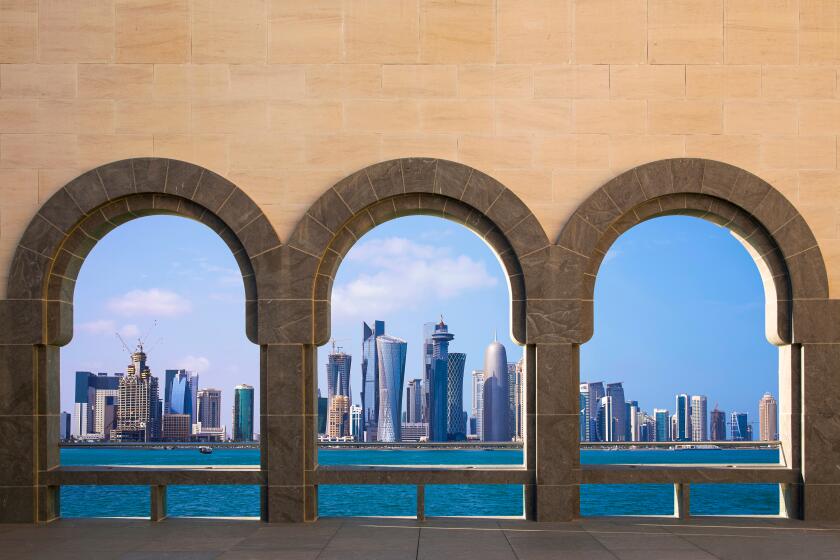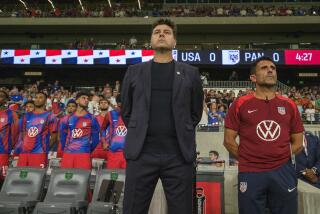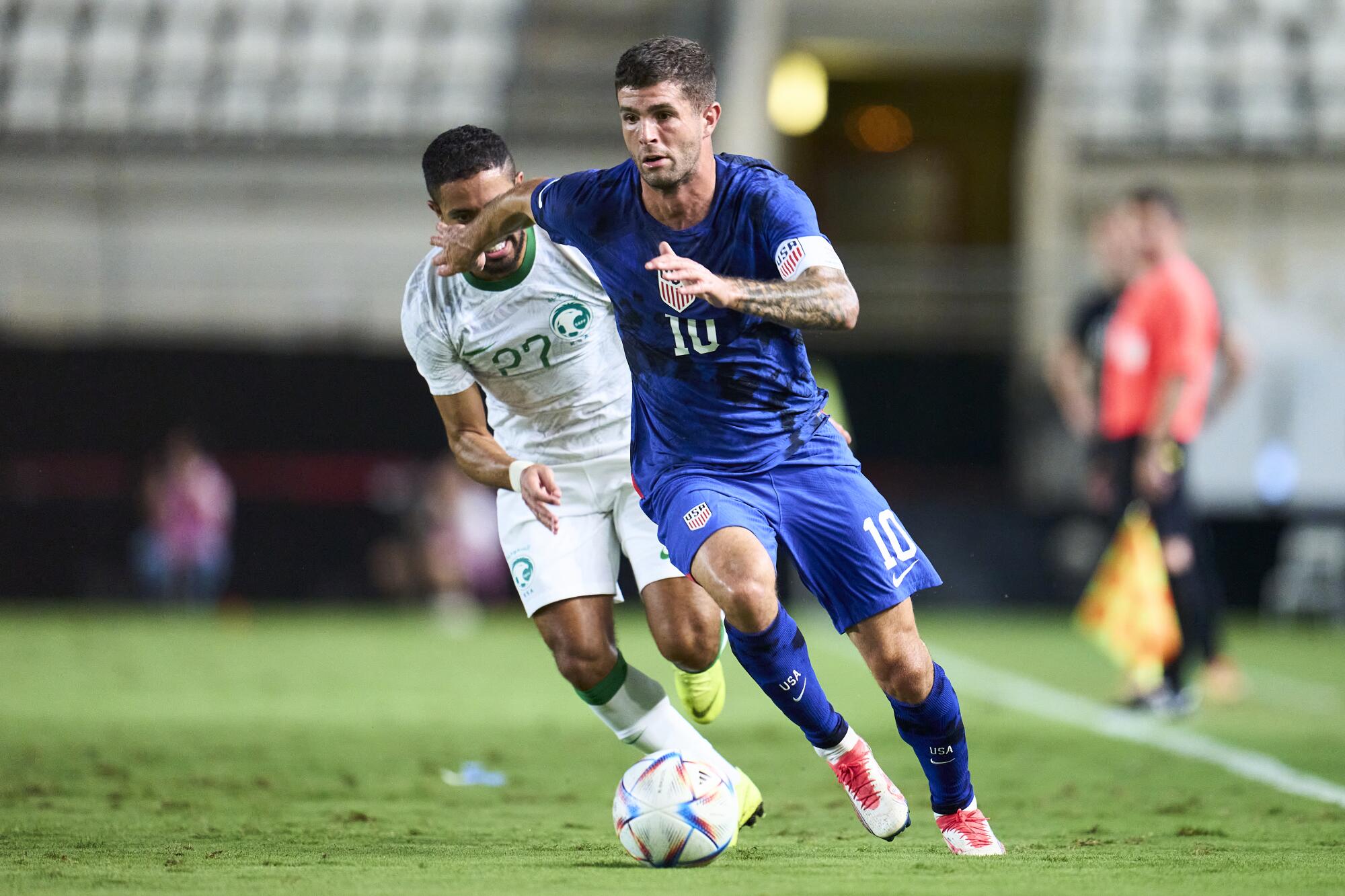
- Share via
Landon Donovan was the young leader of a talented U.S. team that hadn’t won a World Cup game in eight years when he made his tournament debut in 2002.
That’s the same situation Christian Pulisic will face Nov. 21 when the U.S., which didn’t qualify for the last World Cup, opens play in this year’s tournament in Qatar.
And speaking from experience, Donovan said even Pulisic may not realize what he’s in for.
“I don’t think people can really understand how difficult the position he is in is,” Donovan said. “He’s depended on to sort of carry this team, meanwhile he’s never played in a World Cup. It’s really, really difficult.”
The pressure, Donovan said, can crush you or it can inspire you. Pulisic is taking the latter approach.
The U.S. men’s national team will play matches at Banc of California Stadium and Dignity Health Sports Park after the World Cup in Qatar.
“I try embrace to it and use it positively. That pressure wouldn’t be there if people didn’t expect us to do great things,” he said. “There’s always pressure to do great and perform at the highest level every time you step onto the pitch.”
Donovan thrived in his World Cup debut, tying for the team lead with two goals in helping the U.S. to the quarterfinals for the first time in the modern era. But he was just three months past his 20th birthday and playing in MLS. The soccer culture — and competition — in the U.S. has changed since then.
“Nobody cared about soccer in the way they do now. So he has to handle all that, deal with all that. He’s done a phenomenal job,” said Donovan, who says he see similarities between him and Pulisic, both in the way they play and the way they approach the game. Yet for all those similarities, it may be the differences that best define Pulisic.
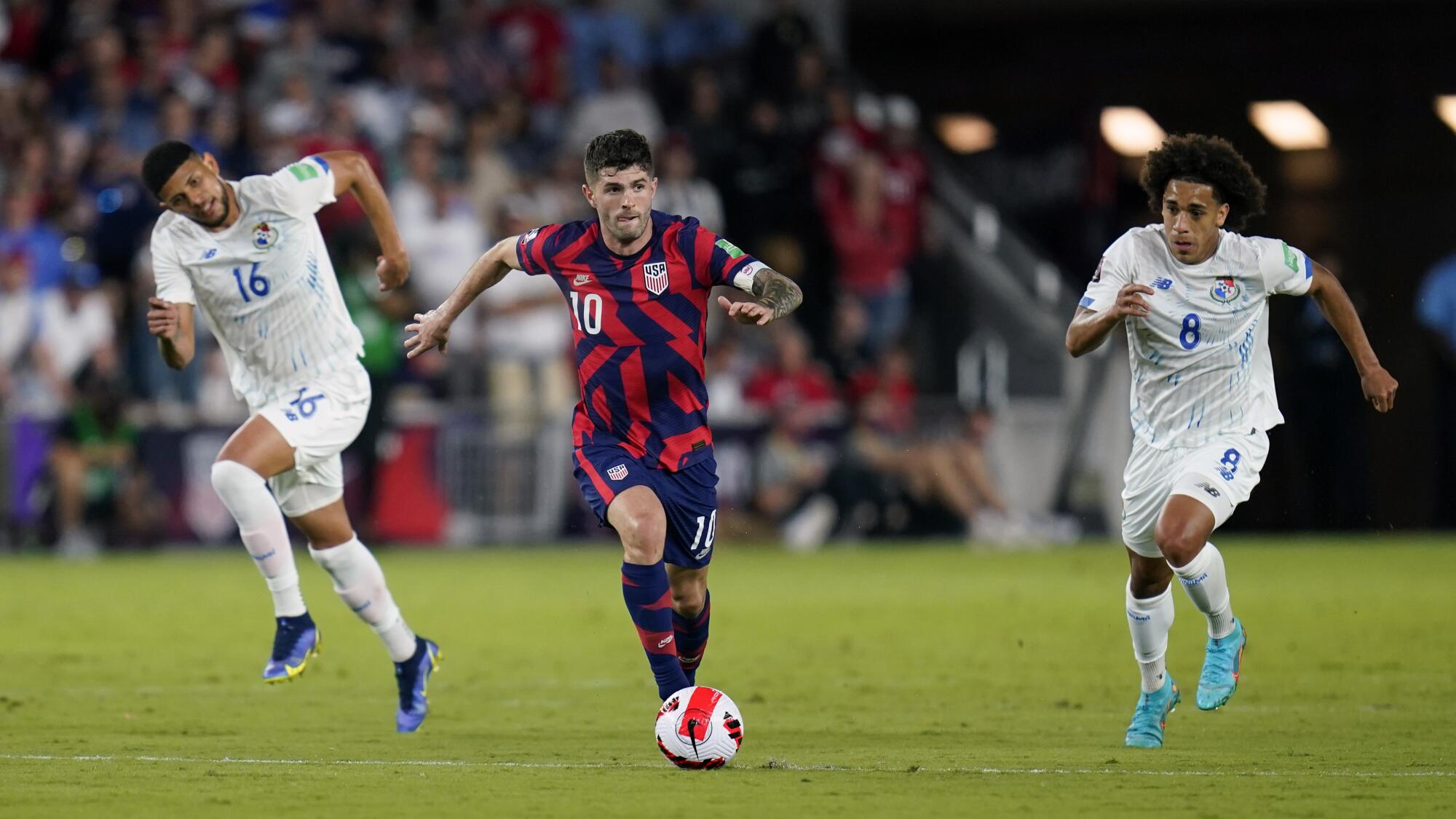
“The challenge now is that he really will feel — and I’m sure the team will too — that he needs to perform well if the team is going to succeed.”
— Landon Donovan, on the challenge Christian Pulisic will face in the World Cup
Donovan, for example, made 384 appearances in MLS, including playoffs, setting league records for goals and assists and winning a record six titles. Pulisic, who is two months past his 24th birthday, has spent his entire professional career in Europe, where he’s made 47 appearances and scored seven goals in Champions League play, both totals the most for an American.
Donovan played in an American-record 12 World Cup games, scoring five times. Pulisic, meanwhile, didn’t go to Russia four years ago after the U.S. fell in its final World Cup qualifier; photos of him in a grass-stained uniform, head in hand and staring at the turf, have become the iconic images of that lost night in Trinidad.
”It took me some months to get over the disappointment,” Pulisic said. ”It has always been a dream of mine to play at a World Cup; in fact, to play at as many World Cups that I can in my career. So I don’t feel like it is redemption to make it this time around. I see it as being able to participate [in] something that I missed four years ago that I can never get back.”
But he says he’s moved on.
“I’m not a big regrets guy. I feel that everything happens for a reason, and I wouldn’t be where I am today without any of those moments,” Pulisic wrote in an email interview from London, where he plays in the English Premier League for Chelsea. “Good experiences are great, bad experiences teach you more about yourself and others. And most importantly, they make you appreciate the good times more.”
Pulisic has already collected enough experiences, good and bad, to write a book, although he was also smart enough to title it “My Journey So Far.”
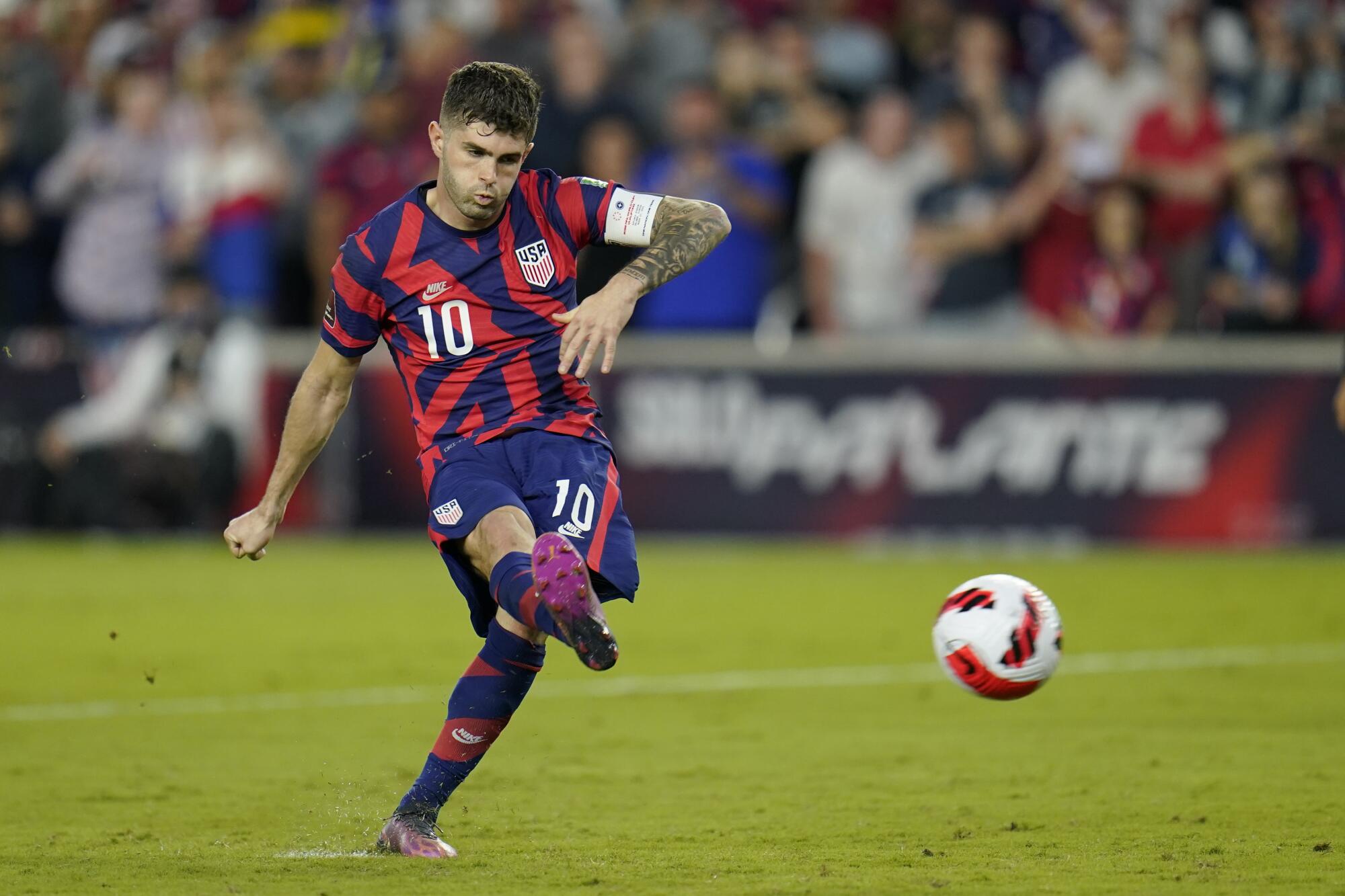
“I hope by no means my journey is complete,” he said. “I’ve been playing professional first-team soccer for the past seven years so yes, my journey is at a fairly early stage. But just because you haven’t got to the end of something doesn’t mean you can’t pause along the way, look back and take stock of how far you have come thus far.”
The photo-heavy book, written with journalist Daniel Melamud and released this fall to ride the quadrennial World Cup bump, features Pulisic’s words and thoughts, but it unfolds more as an extended interview than a traditional autobiography. In it, Pulisic is far more revealing than he has been to date about three principle stages in his life — growing up, representing the U.S. and playing for Borussia Dortmund and Chelsea. He also opens up about his struggles with mental health, another thing he shares with Donovan.
However, much of the attention the book has received so far focused on Pulisic’s comments about former Chelsea manager Thomas Tuchel, including one incident in which Pulisic said he was “dumbfounded and disappointed” when the manager went back on a promise to start him in a Champions League game against Real Madrid.
Harvard-Westlake senior Alyssa Thompson, San Diego Wave forward Alex Morgan among those called up to USWNT for a pair of November friendlies against Germany.
Tuchel was sacked in September, a month before the book came out, and Pulisic has apparently moved on from that as well.
“I’d prefer not to comment further on that,” he said.
“I didn’t set out on this project because I was hoping for the book to be popular,” he added. “I set out on this project because I wanted to share a part of myself with my fans and share my experiences with them. I just wanted to share the story of my life and career so far.”
The best chapters may have yet to be written. Although the disappointment in Trinidad was painful, Donovan says Pulisic is a better player and a better leader now, more mature and more experienced. And he has a better team around him than the one he would have played with four years ago.
“In 2018, he would have been a focal point. But the expectations would have been significantly lower,” Donovan said. “The challenge now is that he really will feel — and I’m sure the team will too — that he needs to perform well if the team is going to succeed.”
For travelers heading to Qatar for the World Cup 2022, we share where to stay, what to eat and drink, and what to experience beyond soccer.
And if he doesn’t? Donovan can speak about that from experience too. Four years after his stellar debut, in the 2006 World Cup, he went scoreless in three group-play games and the U.S. was bounced in the first round, the only time that’s happened this century.
“You have three bad games and it’ll last with you for a long time,” he said. “Everything you’ve put in, all the hard work, comes down to a few defining moments and if you’re not great, it does define you. But the good side of that is, you have one or two brilliant moments and it can also define your career in a good way.
“So Christian has all of that ... positive possibility in him. I hope he’s able to sort of carefree just go out and perform. Because he really is dynamic when he’s at his best.”
All he needs now is a chance to show that.

